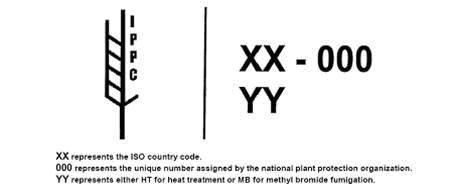 |
|
News/Press Releases |
 |
|
News/Press Releases |
|
LEGISLATION ALERT Operating Procedures for Trade Community Regarding Implementation of the Wood Packaging Materials (WPM) Regulation |
|
Responding to increasing damage to U.S. forestry and agriculture, and in an effort to reduce the risk of introduction and /or spread of quarantine pests associated with wood crates and pallets, the United States Department of Agriculture (USDA) has revised and issued a final rule on its import regulations for wood packaging material (WPM). With nearly 70% of all goods traded internationally packaged and shipped in some form of solid wood packing material, the implication of the new ruling for foreign exhibitors is significant. For example, international exhibitors not adhering to the WPM requirements may find their exhibits delayed or ordered re-exported by U.S. Customs. Put into effect on September 16, 2005, the revision and final WPM rule now requires all non manufactured wood packaging material used in the construction of crates or pallets to be treated according to the new specifications and appropriately marked. International exhibitors shipping wood crated or palletized exhibits who fail to adhere to these requirements, may find their exhibits refused entry into the U.S.. Foreign crating companies and pallet manufacturers as well as the foreign exporters will have to bear the additional costs of compliance. Specifically, the new USDA WPM treatment requirement states that wood packaging material must be either heat treated to achieve a minimum core temperature of 56 Celsius for a minimum of 30 minutes or fumigated with Methyl Bromide in an enclosed area for at least 16 hours at the specified dosage. The wood packaging material must then be marked in a visible location with the following IPPC logo. 
Animal Plant and Health Inspection Services (APHIS) of the USDA has been charged with enforcing the new regulation and will perform phased-in compliance enforcement of the USDA WPM regulation. Phase I: Between September 16, 2005 and February 1, 2006, will be an informed compliance period, with no stoppage or re-export of shipments for non-compliant WPM. If WPM are present and are not marked as having been treated, the custom’s broker and the importer will be informed of the non-compliance and given further information. Phase II: February 1, 2006 will see the continuation of informed compliance measures on all regulated WPM except pallets and crates. Customs & Border Patrol (CBP) will begin full enforcement of the ban on pallets and crates found to be in violation of the new regulations. Beginning with Phase II, re-export of all shipments containing non-compliant pallets or crates will be ordered, if the Port Director determines that it is not feasible to separate merchandise from the WPM found to be in violation. All expenses incurred for the services of CBP Officers and Agriculture Specialists involved in the separation of cargo will be billed to the importer or other party of interest. WPM and associated merchandise will be exported at the expense of the importer or other party of interest. Phase III: EFFECTIVE July 5, 2006, there will be full enforcement of the WPM ban regulated by 7 CFR § 319. CBP will no longer conduct informed compliance at the shipment level. In Phase III, re-export of all shipments containing non-compliant WPM will be ordered if the Port Director determines that it is not feasible to separate merchandise from the violative WPM. All expenses incurred for the services of CBP Officers and Agriculture Specialists involved in the separation of cargo will be billed to the importer or other party of interest. WPM and associated merchandise will be exported at the expense of the importer of other party of interest. This legislation alert from Phoenix International is provided as a courtesy to our professional partners. Detailed information regarding the import and export regulation for wood packaging materials can be found by visiting http://www.aphis.usda.gov/ppq/wpm/.
Phil Hobson Source: www. Aphis.usda.gov/ppq/wpm |